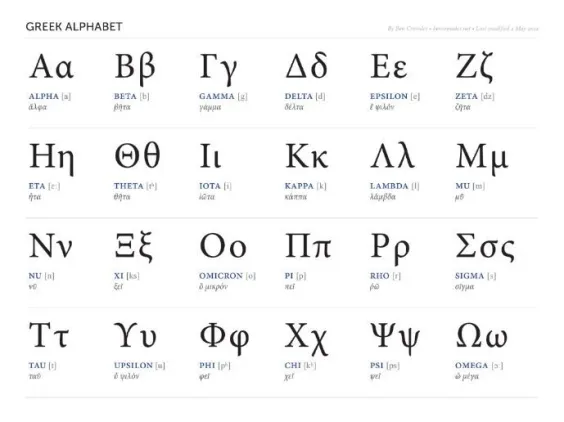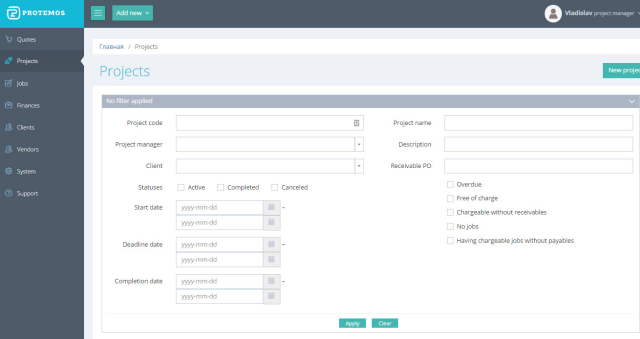
Image provided by the author. Source: bit.ly/2JMLK9X.
Translating a medical document from other languages is hard enough without having to deal with a complex one like Greek. Although the grammar is logical, Greek is still one of the most complex languages to translate; especially if it’s your first time.
Of all the European languages, Greek poses a number of unique challenges during translation and desktop publishing. Even though many medical devices and drug companies face these challenges with Greek documents, there are straight-forward solutions to overcoming them.

Image provided by the author. Source: bit.ly/2qz1NAb.
All-caps styles
The Challenge:
Operating manuals frequently make use of an all-caps style for titles within the body of the text. The table of contents (TOC) might be set up to combine an initial cap followed by lowercase letters. In other words, the title “OPERATING INSTRUCTIONS” would be listed in the TOC as “Operating Instructions.”
This technique works well in many languages. In Greek, however, there are certain letters (accented vowels, e.g., Ü Ý Þ ß ü and the final sigma “ò”) that do not automatically map to the appropriate capital letter. For instance, the final sigma maps to a bullet point when the “all caps” style is applied.
The result is that to make the all-caps titles appear correctly, editors must manipulate the TOC manually, i.e., replace the bullet with a capital sigma. In the case of larger manuals, where the TOC can run for a dozen pages or more, a full day of work would be required to perform the revision.
Suggested Solution:
The all-caps style should not be used in IFUs or manuals that will be localized into Greek. Instead, develop Greek-specific templates and styles that provide for appropriate capitalization of titles.
Text expansion
The Challenge:
When translated from English, Greek text typically expands by 30 percent and, depending on the translator, often more than that. As text length increases, so does the need for more desktop publishing time:
- Greek hyphenation dictionaries do not exist, requiring the manual hyphenation of formatted text.
- If the source templates were designed without text expansion in mind, quite a bit of work may be needed to prepare the master pages for Greek text.
- Given the larger number of pages, a Greek document will require more time for fixing reflowing text and for proofreading formatted pages.
Suggested Solution:
Carefully review your source-language templates to ensure that the longer Greek document reflows with a minimum of manual rework.
Fine-tuning index entries
The Challenge:
The “code pages” used by Greek operating systems are different from those used by Roman languages. This means that many applications or parts of applications cannot “read” Greek text and display it as gobbledygook.
An example of this limitation is the Marker editing tool in Adobe FrameMaker, which cannot display Greek text, even though the Greek manual itself displays just fine. As a result, not even the simplest of index errors can be repaired by a desktop publishing specialist working on an English operating system.
Suggested Solution:
To ensure the accuracy of the index, the production process needs to account for the time needed by Greek linguists to review and fine-tune index entries and the compiled index on Greek operating systems.
Alpha-sorted elements
The Challenge:
Another challenge that is related to code-page conflicts concerns alpha-sorted elements, e.g., footnotes with alpha designations, alpha-sorted lists, and the index. An English operating system provides A-Z alpha sorts, not Alpha-Omega sorts as required in Greek.
The result is that any automatically generated alpha sorts in the body need to be manually overridden in Greek documents, an additional and potentially time-consuming task. In the index, reference pages must be revised to ensure that the index sorts as necessary.
Suggested Solution:
Where possible, replace alpha-sorted lists and footnotes with numbered lists and footnotes; this will reduce the cost of manual rework and thus improve the overall quality of the documentation.
Translating Greek Medical Documents Requires Patience!
Greek is an inflected language, which means that the words change to convey meaning. Whereas the English language depends solely on word order to convey meaning, Greek relies on changes to the words themselves in order to make sense.
The publishing of Greek documentation presents a handful of unique challenges. However, with careful planning and the development of Greek-specific process steps, it is possible to hold down Greek publication costs and produce high-quality deliverables.
About the author
 On The Dot Translations is a New York-based firm that offers translation services in every language. You can contact us 24 hours a day, and seven days a week. Our translators have specialized fields, they get the job done fast without compromising our high quality standards.
On The Dot Translations is a New York-based firm that offers translation services in every language. You can contact us 24 hours a day, and seven days a week. Our translators have specialized fields, they get the job done fast without compromising our high quality standards.





 Brazilian-born Giovanna “Gio” Lester‘s career in translation and interpreting started in 1980. Gio is very active in her profession and in the associations she is affiliated with. She has held many volunteer administrative positions within various organizations related to our profession, and often speaks and writes on issues that affect us. As an international conference interpreter, Gio has been the voice of government heads and officials, scientists, researchers, doctors, hairdressers, teachers, engineers, investors and more. Gio has been a contributor to The NAJIT Observer since its inception in 2011, and its Editor since 2016. She can be reached at
Brazilian-born Giovanna “Gio” Lester‘s career in translation and interpreting started in 1980. Gio is very active in her profession and in the associations she is affiliated with. She has held many volunteer administrative positions within various organizations related to our profession, and often speaks and writes on issues that affect us. As an international conference interpreter, Gio has been the voice of government heads and officials, scientists, researchers, doctors, hairdressers, teachers, engineers, investors and more. Gio has been a contributor to The NAJIT Observer since its inception in 2011, and its Editor since 2016. She can be reached at 

 Louise Taylor is a freelance writer who writes for the
Louise Taylor is a freelance writer who writes for the 


 Over 16-year career in translation Volodymyr Kukharenko advanced from a freelancer to CEO of translation agency and founder of software company. He managed all types of tasks associated with language production: translating and self-training as a freelancer, editing and teaching as an editor, managing the pipeline as a PM. In 2010 he co-founded Technolex Translation Studio and led the company to its current leading positions on Ukrainian market. Having the deep knowledge of the processes in the translation companies and the translation industry as a whole, in 2014 he created Protemos, a software startup to create the new tools for the translation industry which he was missing on his previous positions. By now, the company have released 3 tools: ChangeTracker, Protemos and TQAuditor, and thousands of users are already using them.
Over 16-year career in translation Volodymyr Kukharenko advanced from a freelancer to CEO of translation agency and founder of software company. He managed all types of tasks associated with language production: translating and self-training as a freelancer, editing and teaching as an editor, managing the pipeline as a PM. In 2010 he co-founded Technolex Translation Studio and led the company to its current leading positions on Ukrainian market. Having the deep knowledge of the processes in the translation companies and the translation industry as a whole, in 2014 he created Protemos, a software startup to create the new tools for the translation industry which he was missing on his previous positions. By now, the company have released 3 tools: ChangeTracker, Protemos and TQAuditor, and thousands of users are already using them.
 Cristina Oliveira is an English and German translator and works as a freelancer, mainly on the online market. At the moment she is taking a master degree in teaching English as a second language for young learners at the ISCE Douro.
Cristina Oliveira is an English and German translator and works as a freelancer, mainly on the online market. At the moment she is taking a master degree in teaching English as a second language for young learners at the ISCE Douro.